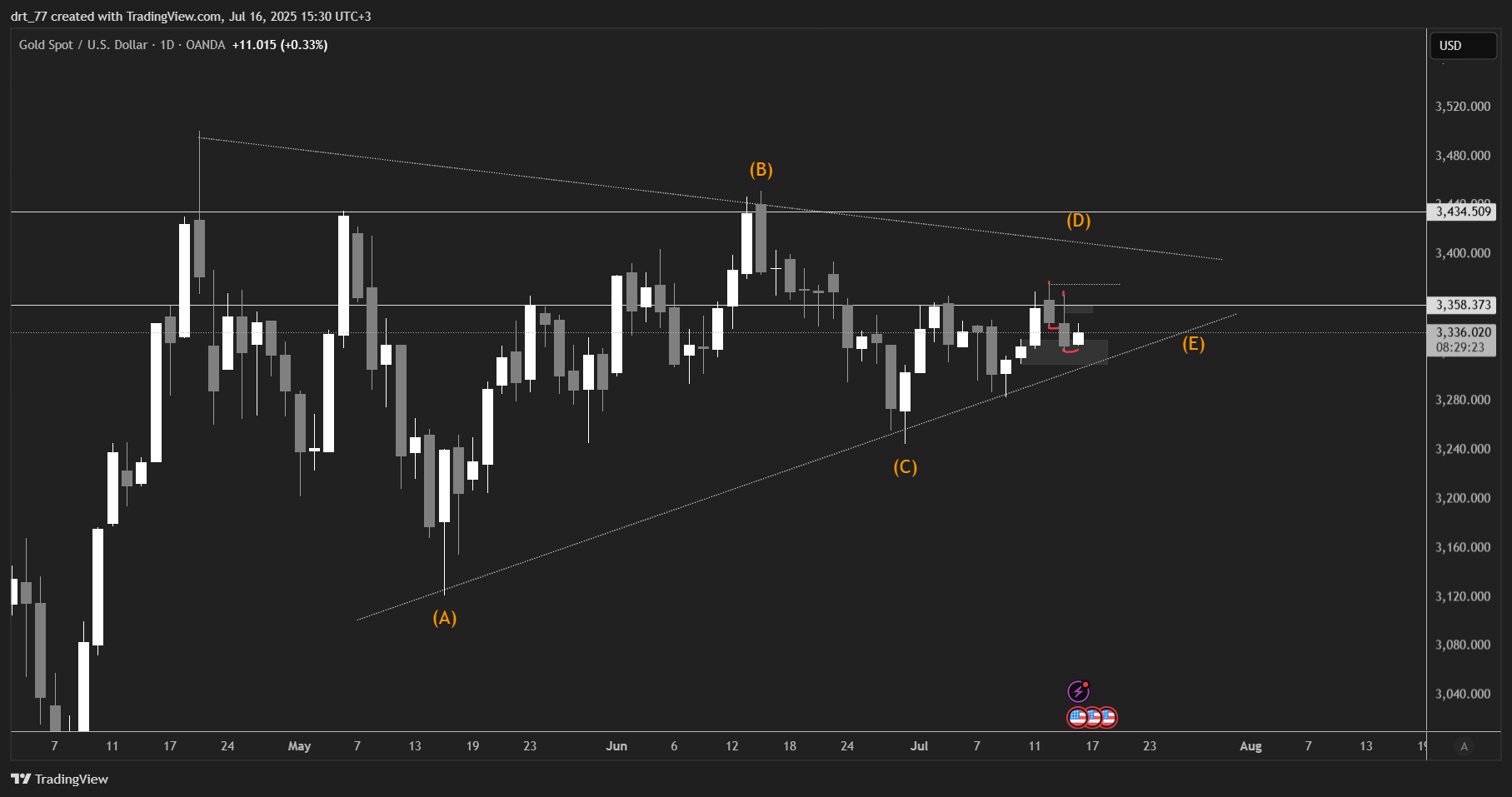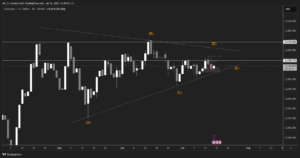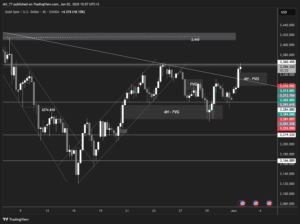The US jobs report, scheduled for release on Friday, will be the highlight of this short holiday week, as markets look for clarification on exactly when interest rate cuts might start. Fed Chairman Jerome Powell’s comments will be closely watched, along with the minutes of the last FOMC meeting on Wednesday. Elections in France and the UK will also keep markets on high alert. Here’s a look at what’s happening in the markets for the week ahead.
US Jobs Data
Investors will focus their attention on the nonfarm payrolls report on Friday as they look for fresh clues about when the Fed might start cutting interest rates. Economists expect the US economy to have added 189,000 jobs in June after larger-than-expected gains of 272,000 jobs the previous month, highlighting the resilience of the labor market. The Fed held rates steady earlier this month and pushed off the start of interest rate cuts to perhaps as late as December, as officials look for more convincing signs that inflation is retreating to the central bank’s target, or evidence that the labor market is cooling. Before the nonfarm payrolls data is released, Tuesday’s report is expected to show job openings fell again in May, suggesting that businesses are having more success filling vacancies.
Powell and Lagarde Comments: FOMC Minutes
Fed Chairman Jerome Powell is scheduled to appear at the European Central Bank’s annual forum in Sintra, Portugal on Tuesday. Powell is scheduled to join ECB President Christine Lagarde in a panel discussion on “Monetary Policy in an Era of Transformation” as investors watch for any new insights into the future path of interest rates. Inflation is easing after surging in the first quarter of the year, but it is still above the Fed’s 2% target. Meanwhile, the minutes of the Fed’s June meeting will be dissected on Wednesday for clues to the central bank’s view on the economic outlook and the factors influencing its monetary policy outlook.
Elections in France and the UK
France heads to the polls on Sunday for the first round of a shock snap election that has rattled markets. Investors will be watching for any hints of the outcome of the second round a week later. But the race, which features 577 constituencies where candidates need only 12.5% of the vote to reach the second round, which also includes three-way races, means that uncertainty could prevail. Meanwhile, polls are predicting a landslide victory for the opposition Labour Party in the UK election on Thursday, sending the pound to levels not seen since the Brexit vote in 2016. Traders see a return to stability after the intense political turmoil of the 14-year Conservative rule and have speculated that Labour leader Keir Starmer could rebuild trade ties with Europe. But it remains to be seen how big a majority Starmer can win in parliament.
Eurozone Inflation
The eurozone is due to release June inflation data on Tuesday, following Germany’s report on Monday, with economists expecting a slight slowdown in both headline and core measures after a pick-up in May. The ECB is due to publish the minutes of its June meeting on Thursday, when it cut interest rates for the first time since September 2019. Although the ECB has started raising rates later, the June cut put it ahead of the Fed in the easing cycle, as the world’s largest central bank still faces headwinds from above-target inflation.
China PMI Readings
Official data on Sunday showed China’s manufacturing activity shrank for the second straight month in June while services activity fell to a five-month low, keeping calls for more stimulus alive as the world’s second-largest economy struggles to gain momentum. The Caixin manufacturing PMI, due on Monday, is expected to fall to a fresh low. Analysts expect China to roll out more policy support measures in the near term, while the government’s pledge to boost fiscal stimulus is seen as helping to lift domestic consumption to a higher level.
Trump or Biden? Gold is the Biggest Winner
As the American public continues to analyze Thursday night’s presidential debate for the 2024 election, commodity analysts say gold may be the ultimate winner of this ongoing battle, as comments by President Joe Biden and former President Donald Trump have done little to calm ongoing geopolitical and economic concerns. According to many critics, the debate was largely disappointing, especially from a Democratic perspective, as Biden was unable to articulate his thoughts clearly. However, Trump was not the clear winner either, as political analysts continue to point out his many falsehoods.
“Regardless of who wins the election in November, gold will rise.” While Biden oversaw a strong economy with record-low unemployment and record-breaking stock market indices, his administration also witnessed inflationary pressures that reached a 40-year high. While Trump was in office, he passed large tax cuts and also oversaw low unemployment and a strong stock market, at least until the global COVID-19 pandemic hit. However, both candidates have contributed significantly to the nation’s growing debt burden during their presidencies. For many analysts and economists, US debt levels are approaching critical levels and are heading towards an unsustainable path.
Looking ahead, while inflation has sharply declined from its 2022 highs, Schneider said she has not received a clear message from either candidate on how they would deal with a slowing economy with high inflation. While everyone is focused on gold as a geopolitical asset, we still expect silver to outperform in the precious metals market due to industrial demand that outstrips supply. As investors seek to build a commodity portfolio to hedge against ongoing inflation and geopolitical uncertainty, they will consider building a portfolio with a 50% weighting in silver, 25% in gold, and 25% in a mix of other metals including copper, aluminum and platinum. As for where silver and gold are headed, as long as gold prices remain above $2,300 an ounce and silver above $29 an ounce, the risks are skewed to the upside.
Yen Struggles at 38-Year Low After Shocking Data
- Japanese government announces deepening economic contraction in the first quarter.
- Reduced chances of the BOJ raising interest rates in July
- Rising US yields put downward pressure on the Japanese currency
- The Japanese yen fell in the Asian market on Monday against a basket of major and minor currencies, still struggling near a 38-year low against the US dollar, after shocking health data from the world’s third-largest economy.
In a rare unscheduled revision to GDP data, the Japanese government announced that the Japanese economy contracted more than previously reported in the first quarter, reducing the chances of the Bank of Japan raising interest rates this July. Also putting downward pressure on the Japanese currency is the rise in the yield on the 10-year US Treasury to a three-week high, ahead of the release of key economic data in the United States later today.
Disclaimer: This article is not investment advice or an investment recommendation and should not be considered as such. The information above is not an invitation to trade and it does not guarantee or predict future performance. The investor is solely responsible for the risk of their decisions. The analysis and commentary presented do not include any consideration of your personal investment objectives, financial circumstances, or needs.





